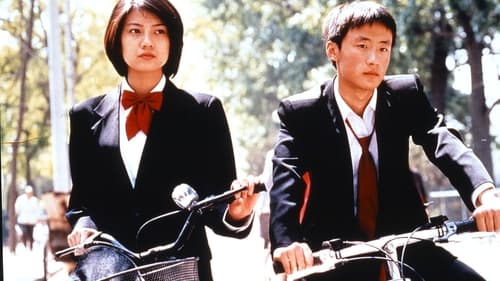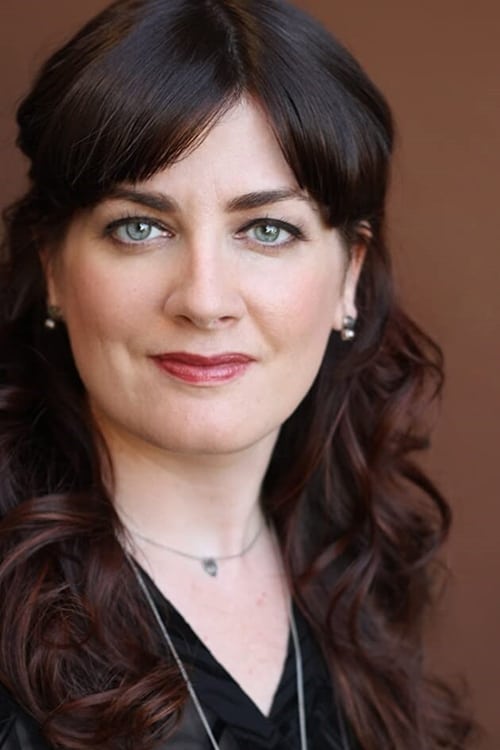Lords of Riga (2015)
ジャンル : ドキュメンタリー
上映時間 : 26分
演出 : Adriana Roze
シノプシス
Lords of Riga allows to see an insight into a passionate subculture of bike couriers. Weaving their way through the urban traffic, they have become silent and sometimes unnoticed witnesses of everyday life in Riga as well as examples of our modern-day society. What is freedom to this bunch of rebellious messengers and where it ends?

主人公のララ・クロフトは、普段はごく普通の女子大生。資産家の令嬢として生まれ、冒険家だった亡き父の遺志を受け継ぎ、最初の任務にトライする姿を描く。それはなんと、神話上の島に隠された、世界を滅ぼす“幻の秘宝”を封印すること。ミステリアスな土地で繰り広げられる、無敵のアドベンチャー・ヒロインが誕生するまでの物語。知られざる“ララ・クロフト伝説”がついにベールを脱ぐ。

In Manhattan, a bike messenger picks up an envelope that attracts the interest of a dirty cop, who pursues the cyclist throughout the city.

村から北京に出稼ぎに来て、自転車宅配便の仕事をすることにした17歳の少年グイ(ツイ・リン)。毎日懸命に働くグイだったが、ある日何者かに自転車を盗まれてしまう。一方、仲間たちの中で一人だけ自転車を持っていない高校生ジェン(リー・ピン)は親に内緒で中古自転車を購入。それは、グイが盗まれた自転車だった。

A documentary that chronicles twin brothers searching for their absent father in faraway Russia. Having very few leads, the twin brothers – different in character and interests – are also looking for the ties that have never bound them as closely as they would have liked.

An ordinary old folks’ home on the Latvian border – one of many, where our parents, grand-parents and other relatives spend their old age. Theirs is the generation whose prime years co-existed with the Soviet Union, and who were promised: work, give all you can, and we’ll take care when you’re old. The system changed and the reality is different. How to live in this reality, accept the current rules, or live in the past and have regrets. We will touch upon their world, and the dreams and hopes of Vilnis, Imants, Alberts and Elizabete.

Viktors is an entrepreneur with a unique offer – he has built a bar, bakery, spa, hotel and an auto-shop in a former “sovkhoz” cafeteria in the village of Lone. Viktors understands life, and that his words carry weight – almost 500 village inhabitants are now employed. Lone is a lively place both day and night, full of youths and many other businesses. Viktors is very proud.

Latvia is home to almost one fifth of the world’s population of the lesser spotted eagle, yet their number is endangered. Uģis Bergmanis is one of Latvia’s best-known ornithologists, and he does his best to save the eagles in Latvia. He also has another passion – he hunts wolves. He can sit for hours in freezing temperatures until meeting his prey eye to eye. There are many stories in this man. And some of them are going to be told.

A film documenting contemporary Latvian reality along the banks of the river Gauja while channelling one of the first Latvian sound documentary films, Gauja (1934). “Along with producers Sandijs Semjonovs and Gundars Rēders and editor Atis Klimovičs, we witnessed incidents and events along the banks of the river some 80 years later. We captured them along with the views of folks on this river in a documentally poetic style reflecting the reality in Latvia,” explains director Mārtiņš Grauds.

For two months, the third-grade students at Cēsis’ New Primary School have been plan-ning and organizing their own graduation ceremony. Throughout this process, the teach-ers are only there to help, trusting in the children’s wisdom, responsibility and ability to organize themselves, make decisions and follow through. Preparations for the celebration involve all the school subjects, turning the school into a place of exciting discovery, where children learn by doing things that are important to them. They enthusiastically live life in the here and now, in all its difficulties and joy.

C (Lauri Nurkse) and Eetu (Tommi Mujunen) are the best friends. They work together as bike couriers in the center of Helsinki, and training tightly every night to reach success of bicycle racing. However, life will change once and for all when a charming and resolute student girl Oona (Elena Leeve) is coming to work in same courier company.Eetu falls in love to Oona. K is annoyed about this, because Oona interferes with their training.

An attempt to understand the people chanting "Atlaist Saeimu!" (Sack the parliament!) year after year. Though rarely attracting a great deal of notice, there are always individuals collecting signatures for a referendum to dissolve the parliament for one reason or another, or simply standing outside the building and reciting their familiar mantra. Latvian governments change fairly often, but the parliament has been dissolved in line wth the Constitution only once, in 2010 (in 1934 it was dissolved unconstitutionally following a coup by Prime Minister Kārlis Ulmanis). The actual parliament building in Old Rīga was, however, attacked in January 2009 during a very rare violent protest which precipitated the fall of Ivars Godmanis' cabinet. The documentary zips back and forth in time giving portraits of various different people and political forces pushing the idea to "Atlaist Saeimu" for different reasons.

Six theater and hip hop teachers take on a five month challenge to show the Latvian public that young men behind bars are more than just that. While seeming impatient, full of disbelief and even rude at first, it turns out to be a superficial impression given off by their masks that must be kept on at all time as an underage colony is a difficult place to be. It has its own rules and it’s not easy being creative there. Teachers help inmates reveal the talents within them that help transcending the monotony of the prison walls.

Māris Strazds (also known as "Mr Black Stork") is a man who's been studying black storks and their behaviour for forty years. His love for and relationship with these beautiful birds is longer than the relationship with his wife. Having spent more than half of his life following black storks, Māris is aware that due to deforestation the number of these birds in Latvia is rapidly approaching zero.

The heroine is a widow and a fiancé who wants to begin a new and happy life. Conflicts in her family’s past prevent it, but she does not give up – she wants to clear away the ruins and do what she can. “Enough of looking for guilt, it’s time to find a solution,” she thinks, and takes action.

Nearly everybody has been to the circus to laugh about clowns, be afraid of the lions and to eat sugar cane. However, can anyone imagine that circus artists reside right there in the circus building - above the arena in the second floor hotel rooms - where they also prepare meals, do their laundry and try out their magic tricks? For over 125 years, despite the discomfort of non-renovated premises and ubiquitous animal odor, local and foreign circus artists follow their routine to create the circus miracle. Sugarcane, Coati and Monowheel is a film about those who dwell in Riga Circus and about what happens outside the arena before and after meeting audience under the circus dome.

Prayer for a Home shows how everyone needs shelter and a home – people in Latvia, Europe and troubled regions throughout the world. The film relates the story of the distinguished Latgalian poet Anna Rancāne and her family – her daughter Terēze, her grandson Daniel, and Daniel’s father, Dara Muhammad Ali – who are trying to stick together despite unfortunate circumstances. Even though Terēze and Anna are Catholic, while Dara is a Muslim from Kurdistan, their love transcends religious, national and cultural prejudice. However, due to circumstances beyond their control, the family is not destined to remain together, despite doing everything they can to stay close.

“Hike '44" is a personal story by director Lauris Abele and cinematographer Marcis Abele about how to maintain humanity when the world falls apart. The protagonist of the film, Melita Abele (89), retraces her refugee path from 1944, when, at the age of 14, she had to leave her home at the beginning of winter. Asking strangers for shelter, spend nights in the woods until she found refuge and warm hearts. Through the use of animation, the viewer will be guided through Melita's memories on a journey through recent and present-day Latvia until a series of events brings Melita to what she has been trying to accomplish for 75 years.

The documentary “Residents” probes problems in Latvia in general and Latvia’s medicine in particular with the story of two energetic young interns, Kārlis and Laura.

After receiving an edict from the municipal authorities about the closing of their school, the students at Mežvidi primary school continue to attend lessons and exercise creativity and fun, but it’s all clouded in a sense of fatality. They aren’t many students, and because of that the school resembles a large family rather than an institution. Near the Russian border, deep in the Latgale region, this place will become a nowhere-land once the youth depart. In an intimate message about a national problem, the story focuses on three sisters for whom life is about to drastically change. Through their daily lives and small adventures we try to understand the real meaning of the contention that “the countryside is dying”. And we see hope.

"If a person doesn't go to church anymore, then the church should go to them," says Rinalds, a calm, smiling, young man with a good sense of humor. He is a priest from a small village in Latgale, Latvia's easternmost and poorest region, and the documentary Prīsters (The Priest) follows the routines of his daily life, his thoughts of life and religion and why he chose this path for himself.







